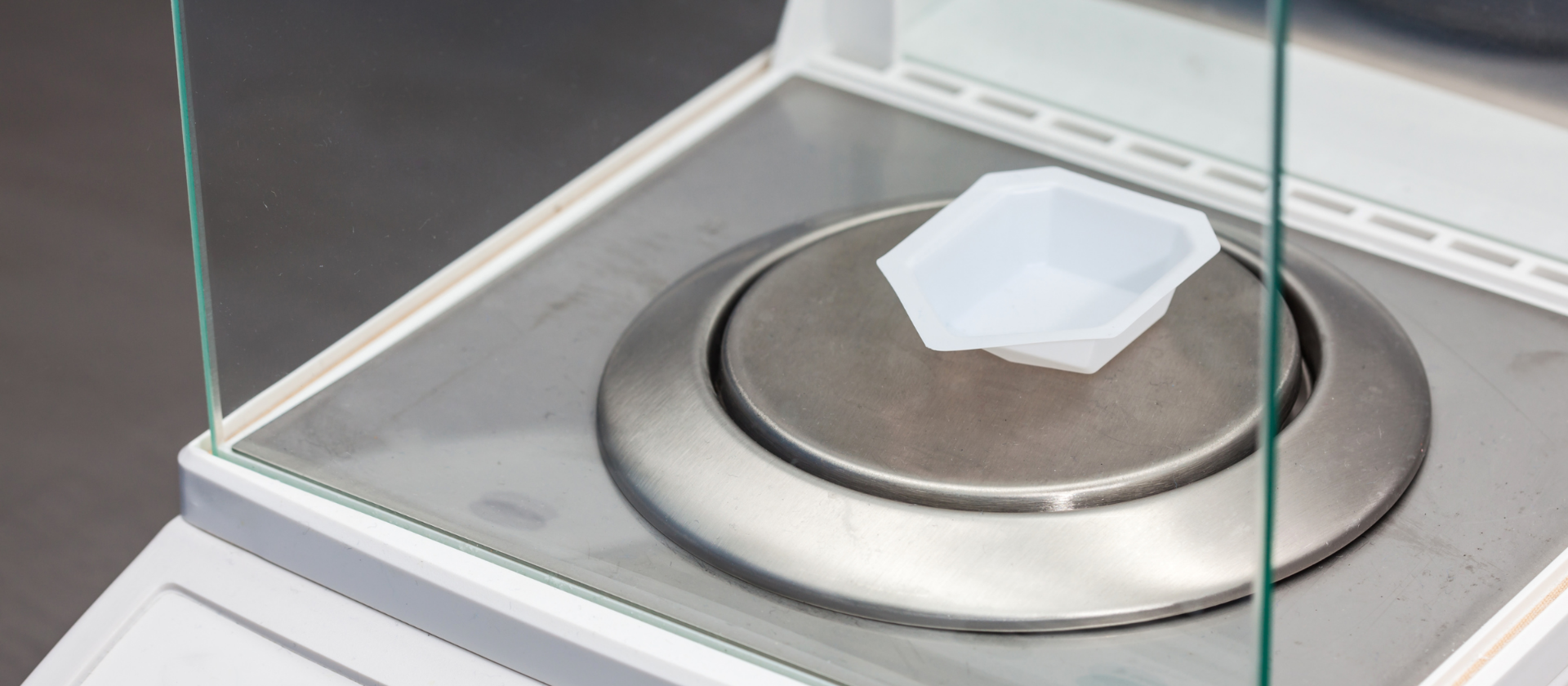What is the Minimum Load of a Balance?
It depends on the balance, but it is important to understand the potential for error to be able to avoid it. If you work with small items or samples and are considering the purchase of a scale or balance, it is important to check manufacturer specifications related to this question.

Minimum Load or Milligrams?
This is a subject that can confuse people, even if it is explained in a user’s manual. If a scale reads in 0.001 g (milligram), why does the datasheet specify a “Minimum Load” at several milligrams? Why not set the minimum to a single milligram? This is a common situation for all balances, not any one manufacturer or balance.
Margin of Error
All balances have slight errors mentioned in their performance rating, meaning that results will vary. For instance, if we read that the linearity error is ± 0.002 g and the repeatability error is ± 0.002 g, our theoretical error is ± 0.004 g, assuming the worst.
For Example
When weighing a 200 g sample on this milligram balance, the 0.004 g (max error) represents 200.000 g ÷ 0.001 g, which is 0.002% error, perhaps very acceptable for most people (note: these errors quoted are maximized to provide clarity). If however, we attempt to weigh 12 mg or 0.012 g on the same balance, the repeatability and linearity errors are the same whatever the value the balance reads, but the percentage of error will increase to a percentage that is no longer acceptable. The math now reads 0.012 g ÷ 0.004 g, which is a 33% potential error. Remember that this is a worst-case scenario, but even so, just an occurrence of 50% of this kind of error could seriously affect your results.
Rule of Thumb
There is a simple rule of thumb that says that to weigh 1 milligram of a sample, you should be using at least a 0.0001 g (Four Place) balance. Even this may not be sufficient. We recommend a minimum load on a four-place balance of 10 milligrams (mg), or 0.0100 g to be sure of your readings.
Minimum Load in Pharmaceuticals
As a specific example at work, consider the pharmaceutical industry. The Minimum Sample Quantity (MSQ) is defined in USP 41 and USP 1251 for a milligram balance as 0.0820 g. This practice set by the U.S. Pharmacopeial Convention regulates standards for the strength and quality of medicines and food ingredients worldwide. It is designed to ensure that weighing is conducted accurately so that there is not too much or too little of key ingredients.
The consequences of inaccurate weight measurement for the formulation, mixing, or compounding of life-changing medicines with potentially serious side effects are great. Even in the calculation of smaller food ingredient measurements, the consequences are serious for manufacturers as well as consumers.
TLD's Scales & Balances
The Lab Depot provides high-quality scales and balances for multiple industries, and our sales team remains ready to help answer any questions you may have about the best choice for your process or application.




